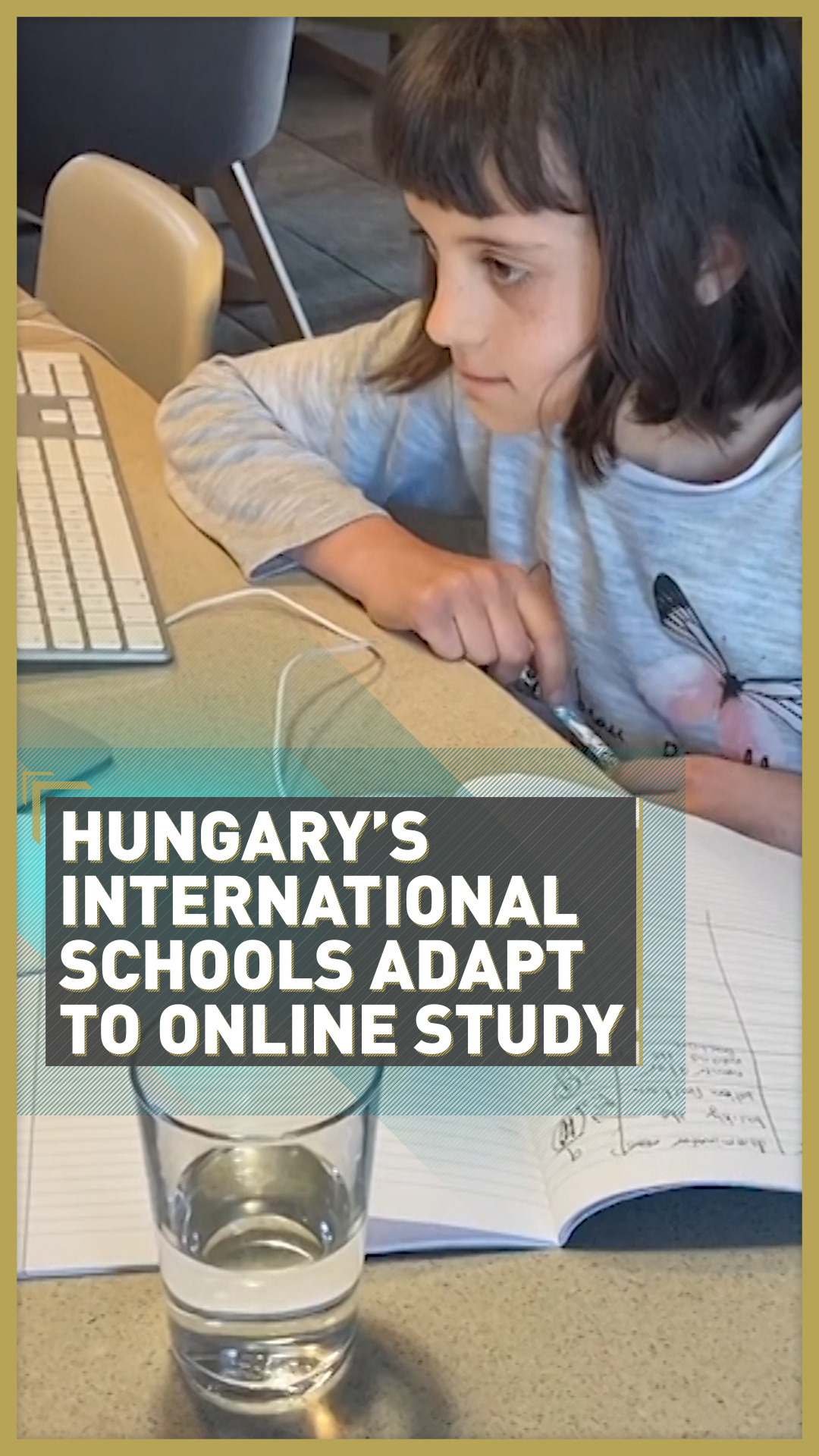01:56

When Hungary's schools were forced to close due to the pandemic, teachers and parents of Budapest's international schools had to quickly adapt to support children through dramatic changes to their learning and daily lives.
Improvisation has been essential to dealing with the coronavirus lockdown over the past month.
"My awesome mom created this 'on air' sign, so when they walk by they're like 'oh, he's on air!' when I'm on a Zoom call," said Oliver, a student at the American International School in Budapest.
Since the government ordered all schools to close due to the pandemic, students have had to adapt to learning from home.
Now, a regular school day starts with a Zoom call with the teacher.
"I give them a little bit of time just to chat where everyone's just talking at once because they need it, and then we have a time where every kid gets a chance to share something if they want to," said teacher Kimberly Porter.
Some families are moving back to their home countries because of COVID-19, and it's unlikely they'll be back at school before they finish.
"You're dealing not just with the situation we're in, but you also have children who are not going to really get that proper goodbye," Porter said.
For other families, the school closure means adjusting to working together in a small, traditional house.

Schools have encouraged activities like cooking to limit screen time. CGTN
Schools have encouraged activities like cooking to limit screen time. CGTN
"We've had our moments you know, when someone's on break and goes to get a snack and doesn't realise you're teaching, so we have our moments but we're navigating it quite well," said teacher Pia Gardner.
She teaches children with learning difficulties, and says doing it through a computer has been tough at times.
"That's been the struggle, trying to keep them engaged and present and on task and that's hard, because I've been doing it for 20 years and I realise that I use physical proximity as my number one tool."
Porter feels the same frustration.
"It's much easier to support children when they're with you, every day in the classroom it's much easier to do," she said.
"I can see on their faces when they walk into the room if it was a good morning or a bad morning, and so I don't have that time to support them that way."
Gardner's 13-year-old daughter Ruby says it helps to live next to a forest where she can exercise.
The school has come up with creative ways to limit students' screen time - they're asked to record different activities such as art, and cooking.
"Of course the people who are suffering, that's a completely different story, but the people who are all at home, I think it's important we learn to make it more of a positive experience," Ruby said.